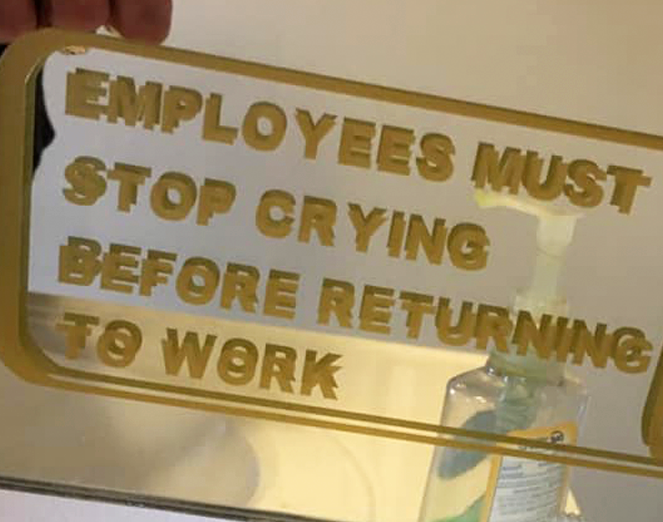

It doesn’t walk in saying, “Our programme means militias, mass imprisonments, transportations, war and persecution.”
Yeah but evidently it does, and people still choose it.


It doesn’t walk in saying, “Our programme means militias, mass imprisonments, transportations, war and persecution.”
Yeah but evidently it does, and people still choose it.


nah you’re good you’re good, no need to apologize


Yeah I guess I should rephrase that – I knew lead poisoning wasn’t a myth, but I wasn’t sure about the theory that lead-exposure is the reason for the apparent rise in anti-intellectualism/conspiratorial thinking in older generations


At first I enjoyed the irony in this comment – thinking the lead-poisoning myth is my type of conspiracy – but it turns out, in a spectacularly non-conspiratorial way, researchers have shown correlation between lead exposure as a child and maladaptive personalities as an adult.


Isolated (mis)information streams and the need to identify with an ingroup are the two biggest features to me.


Looks like Skill Up on YouTube did not recommend – I typically trust his takes over review outlets


I feel that way as well


I find it rude when people on the bus put their bag on the empty seat next to them, so that you have to ask them to move it when there are no empty rows left. It’s strangely hostile to me.
I think its just polite to leave your bag off the seat until the bus is boarded.


Smoking…what?


Mind me asking how you get access to deadlock? I wanna give it a shot, too.


Thanks :)
What are you playing, bpt11?


Just started Baldur’s Gate 3. Never played a CRPG before (does Disco Elysium count?) so it has been quite the learning curve for combat. Pretty stuck in the Underdark, it seems. Looks like I’ll have to help out a slavetrader Gekh in order to proceed because I don’t think I can defeat him and his buddies…


I actually was fortunate enough to visit the Sistine Chapel this summer, and although when you take a close look at images online of the paintings, it’s clear they aren’t “realism”, when you see the paintings in person they look very real. I was especially struck by how real Jonah looked, as if he was just hanging out, sitting on a ledge near the ceiling. Very cool experience.


Hackers acting as if they’re doing a public service by bringing down a free publicly accessible tool is a new level of assbackwardness.
If the goal really was to force IA to increase their security, they would’ve tried to consult with them. This is more about notoriety and chaos and the hackers have no moral ground to stand on.


I didn’t read the Zahir but I felt like The Alchemist was a shallow Siddhartha-wannabe when I read it. I couldn’t help but think it was trying too hard to be profound


The Alchemist and Song of Achilles are some popular books that I thought were mediocre. Probably not the worst book I’ve ever read though.
That probably goes to Sean Hannity’s Conservative Victory that my grandma gave me when I was 12.
True slop. Fuck Sean Hannity.


Noooo :( I love Moby Dick.
Granted I listened to the audiobook


but abortion


I’m not the original person asked, just expressing my opinion.
I can’t definitively say what I would do, because I was born into privilege. I can try to imagine, though, if I was broken in such a way, I would likely seek revenge. That doesn’t invalidate anything I said in my previous comment. I believe Hamas committed atrocities on Oct 7. I would be hesitant to condemn them due to the conditions those atrocities were borne out of. If my family was murdered, my home destroyed, my people oppressed, etc. I’m sure I would feel justified in an act of revenge.
But killing or abducting an Israeli child, who for all I know could grow up being an advocate for my people, would not be justice. Do you think it would be? And how many Israeli children would need to die in order to to account for the endless sins of their forebears?
Teacher: “Slavery was bad.”
Republicans: “We need to end this indoctrination of our children.”